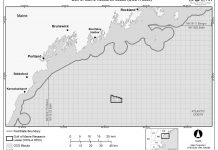A threat to the most important federal policy for continued wind energy development in America has led 85 companies to protest to the 21 members of Congress involved.
There are 20 co-sponsors of the “PTC Elimination Act” (H.R. 1901, known as the Marchant-Pompeo bill for its initial two sponsors). The 85 companies today sent each a letter saying that if passed, that bill would “take away an effective, business tax incentive that creates jobs, drives rural economic development and reduces energy costs for Americans across the country.”
The legislation unfairly targets just one industry, the letter says, which has invested $100 billion since 2008:
“[R]ecent PTC expirations have led to dramatic job losses and shuttered manufacturing facilities. These recent examples show that taking away the PTC and making retroactive tax policy changes would threaten an important economic opportunity for workers and their families in your states.”
In 2014 alone, the U.S. wind energy industry added 23,000 jobs. But the year before, after the renewable energy Production Tax Credit was allowed to expire even briefly, installations of new wind farms fell 92 percent.
With stable policies, a U.S. Department of Energy report says American wind energy can quadruple by 2030 and supply the U.S. with 20 percent of its electricity. That will support 380,000 jobs; increase tax payments to communities to $1.8 billion a year; and increase lease payments to farmers and ranchers to $650 million a year.
The letter notes bipartisan support for continuing the renewable energy Production Tax Credit in Congress and from both Republican and Democratic presidents, as well as a strong majority of Americans.
For example, a March 2015 Gallup poll found 84 percent of American voters want the U.S. to put more emphasis or the same emphasis on producing domestic energy from wind. Two-thirds of Republicans and Independents wanted more emphasis.
— Source: AWEA


































